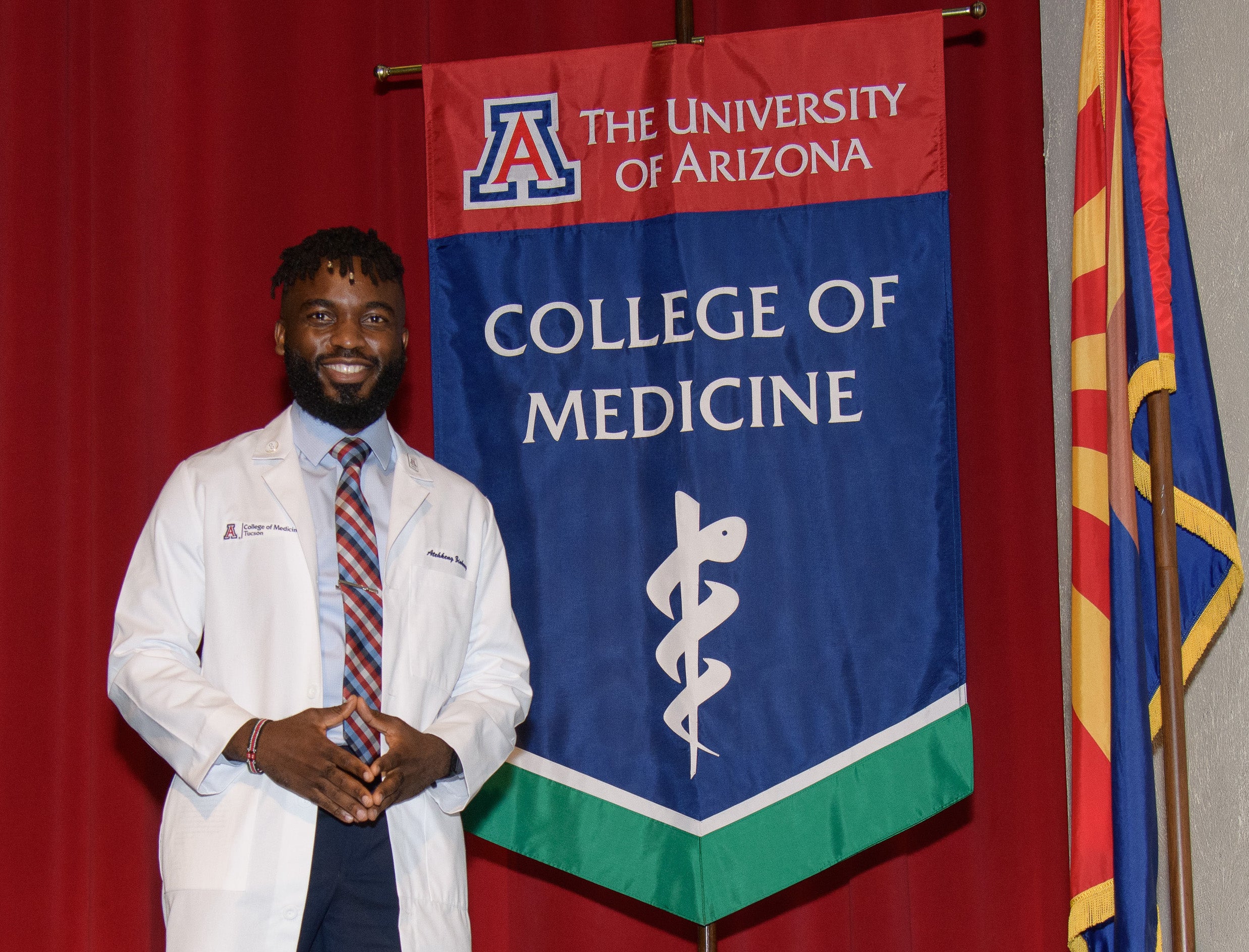News & Highlights
Topics: Clinical & Translational Research, Diversity & Inclusion, Mentoring
Three Questions with Visiting Medical Student Ateh Zinkeng
Our summer intern discusses his career aspirations in medicine.

Ateh Zinkeng is determined. Originally from Cameroon in West Africa, he made the decision to move to the U.S. to attend the University of Arizona for his master’s degree and quickly fell in love with the institution and faculty there. When it came time for him to choose a medical school, he knew he didn’t want to be anywhere but Arizona. He is currently working towards obtaining both his MD and PhD.
This summer, Zinkeng is taking part in Harvard Catalyst’s Visiting Research Internship (VRIP) Program. This eight-week mentored internship for first- and-second year medical students pairs interns with Harvard faculty mentors who guide them through a summer research project. The program ends with a closing ceremony where interns present their research findings.
We caught up with Zinkeng as he was preparing for the final weeks of the program.
How did you become interested in studying medicine?
Initially my interest was to become a soccer player or a football player, but along the way there were a series of events that happened in my personal life that changed my mind. Losing my dad to cancer was one of them, as well as seeing my brother recover from a near-fatal motor accident. Witnessing how the doctors and others took care of my family when these events occurred motivated me to go into medicine.
I want to use medicine as a beacon of hope to provide care for people. Unfortunately for my situation, my dad succumbed to glioblastoma after going through two surgical procedures and suffered a stroke. Seeing events like these has really inspired me to want to become a physician who provides excellent care and hope to patients.
“I want to use medicine as a beacon of hope to provide care for people.”
Harvard has been a great realization for me. I always had this dream to someday study or do a formal training at Harvard Medical School. I’m so blessed and fortunate to have been selected as one of the interns for this program.
Tell me about your research project?
My summer research is centered on multiple myeloma. I’m being supervised by Monique Hartley Brown, MD, who is one of the multiple myeloma specialists at Dana-Farber Cancer Institute. Multiple myeloma is a blood cancer that affects plasma cells. When you treat it, it has a tendency of relapsing even after patients undergo multiple treatments. Recently, an immunotherapy called CAR T-Cell therapy (chimeric antigen receptor T-cells) is giving hope to patients who have gone through multiple relapses as they are responding well to the therapy after trying other treatments.
Something to note is that multiple myeloma is a disease that affects people of African descent disproportionately. When you look at the therapeutic landscape and the clinical trials being conducted to improve survival rates, you will notice that there is a chronic problem. And that problem is the fact that Black study participants are underrepresented in these studies. My question is, “How is this impacting treatment going forward after these drugs have been approved?” “Is the lack of representation in these clinical trials that lead to the approval of, for example, CAR T-Cell therapy affecting how patients perform down the road after receiving this treatment?”
So, we are looking into clinical trials that led to the approval of this therapy as well as tracking the treatment outcomes specifically in African American patients who have received these CAR T-Cell therapies after the FDA approved them. Since they were not adequately represented in these clinical trials, we wanted to see whether they were having just as good of a response to the treatment as the other people (who were represented in the clinical trials). We also wanted to see whether they were experiencing adverse effects that were not captured during the clinical trial. It’s really been an enlightening process.
What are your career aspirations?
I aspire to be a physician scientist. I want to be in the space of academic medicine, to provide excellent care to patients while also running a translational research lab. I want to take the issues that I will see in my clinical practice to my lab and design experiments around them to develop unique therapeutics or biomarkers to help treat patients and improve their quality of life.
I also want to be a good mentor, especially for minorities and underrepresented populations in medicine. I had a mentor tell me, “It’s great that you’re making all this progress, but it’s also very important to help the next person coming up.” I’ve taken that advice to the tee, and I hope to continue to be a mentor as I become a physician – that’s something that is of the utmost importance to me.

